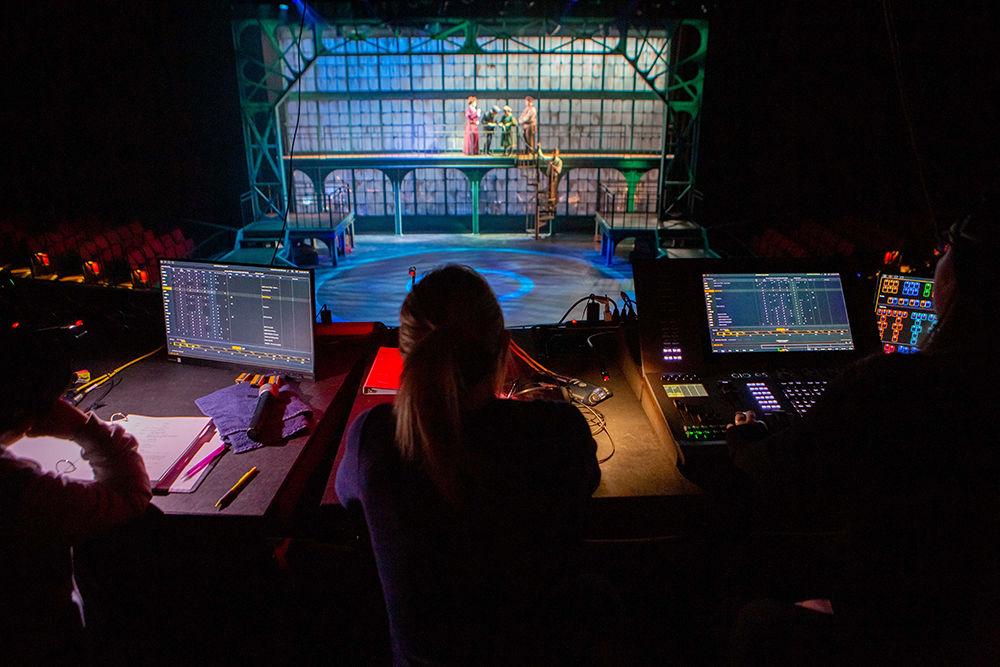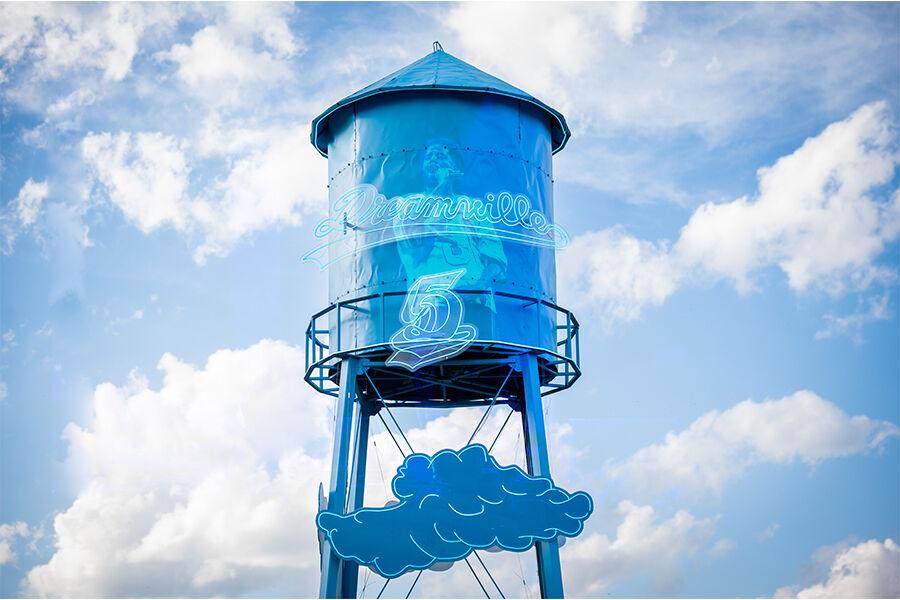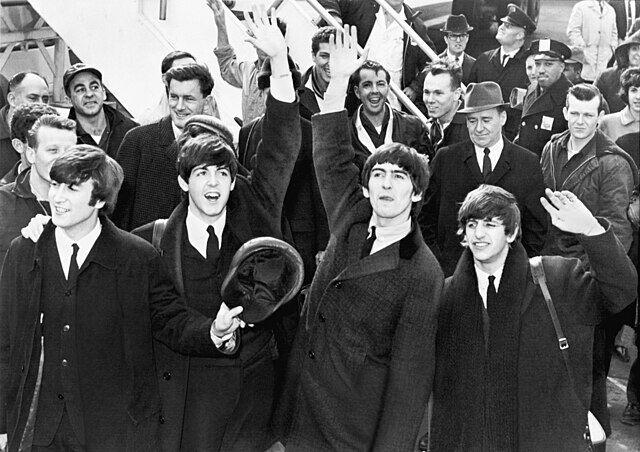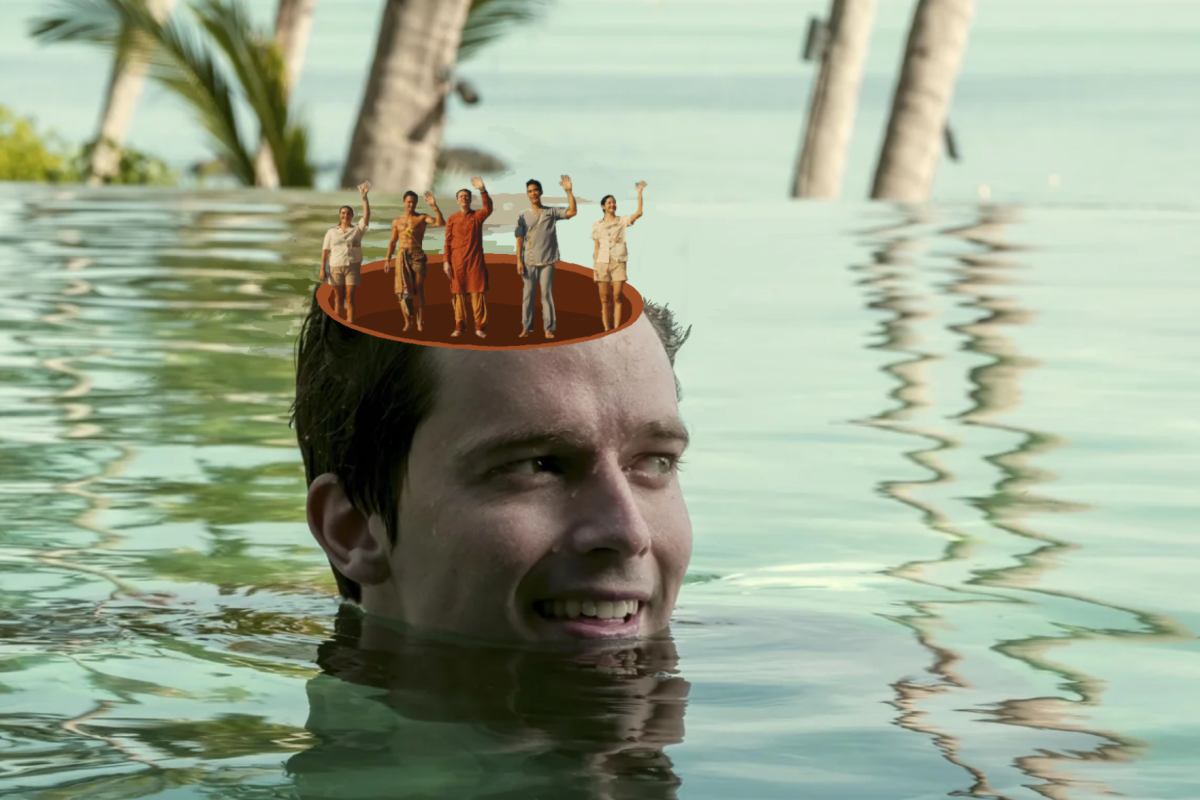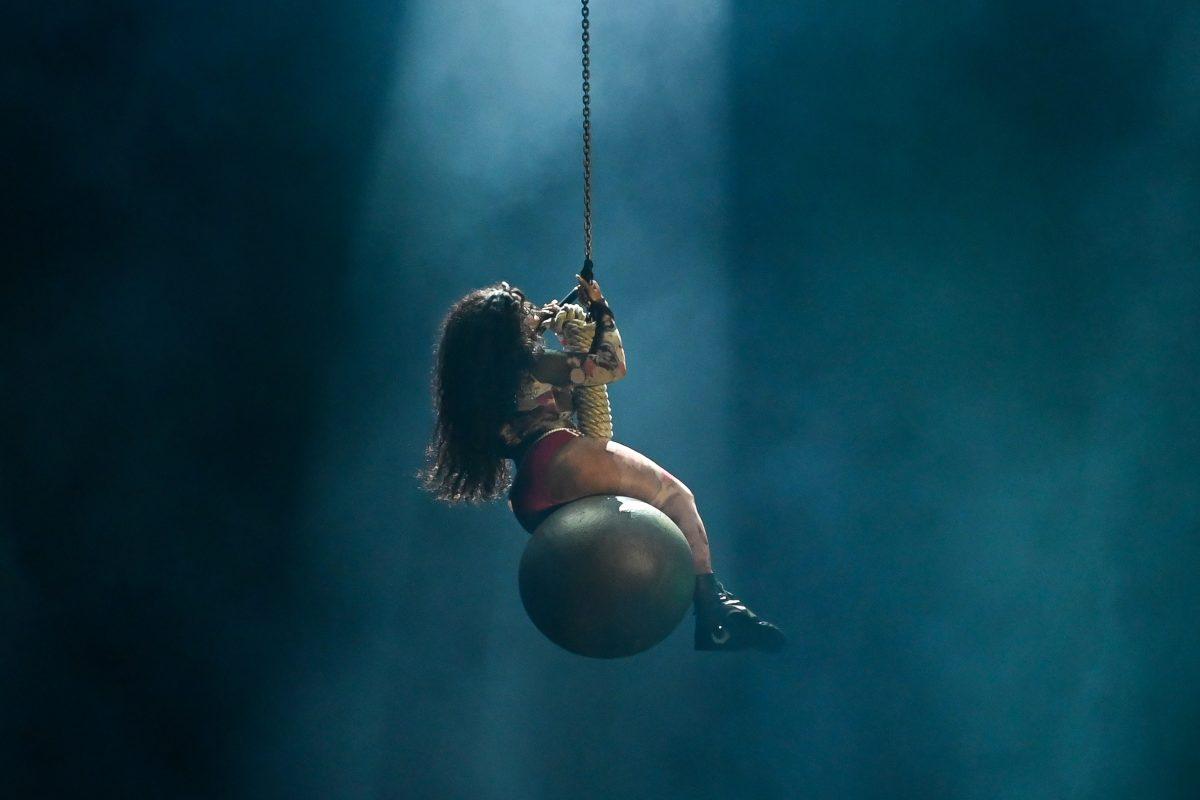University Theatre’s 2023 spring production is “Urinetown,” a musical about capitalism, greed and scarcity wrapped in a satirical bow. This week Technician correspondents went behind the scenes to learn what’s going on leading up to opening night Feb. 23.
If all goes well, sound and lighting go largely unnoticed in theater. Kevin Wright, assistant technical director and sound engineer for “Urinetown,” got his start right here at NC State.
“I was a sophomore, and I saw an ad in the Technician for part-time work at Stewart Theatre,” Wright said. “It basically said, ‘Do you want to learn lighting and sound?’ I’m like, ‘microphones and speakers and stuff, hell yeah. Let me check this out.’ And then from there, I sort of never left.”
Wright continued to work part time and freelance until getting a full time position at University Theatre in 2012. His work mostly involves handling sound at events on campus, but for a production of this scale, the sound engineering requires a particularly experienced hand.
“It is like a performance, in a sense, for me,” Wright said. “I’m performing from the beginning of the show to the end, every time. I think ‘Urinetown’ has 20 people in it. Every single time they come on stage, that’s a mic move and every time they leave I have to turn that mic off. So when you track that through 20 people through an entire play, it gets complicated really fast and the last thing you want is to have somebody’s mic on when they’re in the dressing room.”
Wright said sound engineers are no stranger to fixing problems on the fly and being prepared for anything.
“For me, it almost feels like I’m sitting there at the board and I’m waiting to get sucker punched by an invisible gremlin,” Wright said. “When you give out 20 wireless microphones, that’s basically 20 radio stations right in the same room that you’re hoping will all talk flawlessly to the receiver and then the board.”
Despite the chaotic nature of Wright’s role, “Urinetown” is not new to Wright.
“Interestingly, this is the first repeat for me,” Wright said. “This is the first musical I will now have done twice with University Theatre. What I’m looking forward to with this production is the orchestra will be in the pit in Stewart Theatre.”
The stage will be opened up to a five-foot recess for a small orchestra to sit in and the audience will be able to see them perform throughout the production.
With sound in the capable hands of Wright, we turned to Joshua Reeves, director of University Theatre and lighting and production designer for “Urinetown.” Unlike sound, lighting can be preset before the show starts.
“I think a typical misconception is that they are not turning on individual lights,” Reeves said “They are pressing one single button. We spend those technical rehearsals leading up to the show building stage picture looks.”
For instance, if the lighting team is looking at a room scene, they’ll note all the areas light should be coming in from — the window, lamp, etc. — and will play around with the light settings in those areas until they like what they see. Then they will save those particular settings as Lighting One, a quasi-screenshot. During the musical, the stage manager will give cues to the student at the lighting board, notifying them when to hit Lighting One.
“It’s like animation, almost, and we set all that stuff beforehand,” Reeves said. “It’s like if you’ve ever been to an amusement park. Every time that roller coaster passes a certain part, this animatronic turns on and the lights turn on for it.”
Beyond the technicalities, lighting, like any other art form, involves theory and intentional design decisions.
“It’s such a magical type of design or magical art form,” Reeves said. “A set designer can create this beautiful house on stage or whatever it may be, but I have to change that into different places. … I have to change it from an interior to an exterior sewer, to nighttime, daytime, without anything really moving in this particular show.”
Being in supportive roles like lighting and sound can sometimes feel thankless, but Reeves has always been passionate about lighting and its understated nature.
“What I like about lighting is that it is supportive of the other elements, be it the performer, the director of the scene, the costume designers,” Reeves said. “I’m there to put their work in the best light, to accentuate, to help push and pull the mood, the atmosphere, and to highlight there the work that’s being done.”
And a lot of work is being done. The caliber of the sound and lighting teams alone make it clear “Urinetown” should be highly anticipated.


